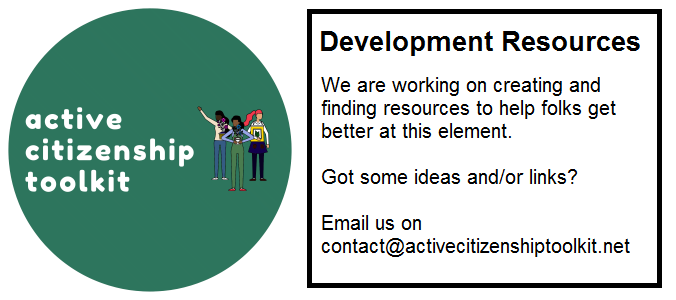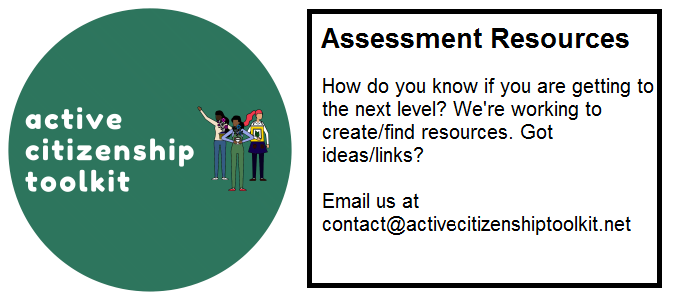Element Descriptor
Closely related to project management, this is specifically how to organise, process, control and use information. When information is understood it emerges as knowledge, which can be used to make effective decisions, that can lead to appropriate actions and deliver meaningful results. Not having good info management wastes time and credibility, and hurts morale.
Level descriptors
| Novice | Practitioner | Expert | Ninja |
|---|---|---|---|
| For a single project / task you can organise online project documents / folders / links to references in a methodical manner with a simple naming convention that includes the source of any information, date and person who last edited it. You can prioritise information gathered or received and understand whether it is relevant to the project / task delegated with assistance or prior guidance from someone more experienced. You will be able to share and pass on information that is relevant to someone more experienced leading or supervising the project / task as well as clearly referencing where that information was sourced. | You can handle information for multiple or larger projects / tasks. You organise online project documents / folders / links to references in a methodical manner with a simple naming convention that includes the source of any information, date and person who last edited it. You can independently prioritise information gathered or received and understand whether it is relevant to the project / task delegated. You will be able to share and pass on information that is relevant and understand who would the most appropriate people are to share it with. You are able to maintain a reference document to record where all relevant information was sourced related to that project / task. | You can handle information for multiple larger projects. You organise online project documents / folders / links to references in a methodical manner set standards on naming conventions across the group. You independently prioritise large volumes of information gathered or received and have created a scoring system to categorise whether it is relevant to specific projects / tasks / strategic direction of the group. You have created systems or processes within the group to share information that is relevant and have allocated groups both internally and externally to share them with. You are able to build a reference database to record, score and sort relevant information sourced related to multiple projects / tasks. | You have information management experience and skills that Apple, Google and GCHQ are envious of. You are known as the overseer of all that should and could be known about the group and have created large, complex automated systems of information management for the group related to its strategic priorities, current projects and are constantly looking at how it can be adapted to meet future needs. |
Element Overview Essay
This is a draft. If something doesn’t make sense, or you see typos, or if you have further ideas, please email us on contact@activecitizenshiptoolkit.net
Information Management which is broader than basic computer skills, which we discussed earlier . Information management is the term I would use for managing all the information that your group needs to manage. Now, obviously that includes emails in and out documents you’ve written, but it also includes things like
- the local newspaper, how are you making use of that, to find out what is and isn’t being said in public.
- The agendas and minutes of a local authority.
- The websites of organisations that you’re particularly interested in
- the emails, bulletins,
- the Twitter feeds
We live in a world of what I call data smog, there is now just an endless avalanche of information and being able to sort out what’s relevant, and then being able to store it so that you can find it easily and analyse it and come back to it.
So three years later, you’ve kept a copy of the emails or the tweets, so that someone who claims they never said x can be confronted with the fact that they did in fact, say x. Now of course, this may or may not help you because the truth does not really seem to matter very much to our lords and masters. Often they can’t be shamed, but it does help to delegitimise them if that’s your, if that’s your aim, okay.
So the problem for us is that none of us is particularly trained or very few of us typically trained in good information management practice, which means that we’re making it up as we go along. Learning bits and pieces, forgetting them having to learn them again. And each of us has different habits.
The consequences for misremembering something can be enormous. And throughout all of this, you have to remember that hunting around for a particular quote or email or piece of information is demoralising, and time wasting. Okay, so we’ve talked about why people aren’t good at collecting or managing information. The consequences include waste of time, missed opportunities, you know, if we had been able to retrieve that fact about that person, we could have intervened in that debate, and forced them to backtrack, or to explain themselves further, but now it’s too late, now it’s a fait accompli.
So what is to be done I suppose the first thing you have to do is figure out where your information is coming in from, as I said, might be websites, it might be newspapers, it might be email bulletins. You’ve also got to think about how you’re going to record conversations face-to-face, conversations that you’re having with other activists, maybe with local councillors, with journalists, whatever. So that you can retrieve it because your memory is fallible, and some
Number two, try to figure out standardised ways and practices that you’re going to capture information and share them among the group. Now one of my favourite techniques is to put the date expressed into purely numbers in the title of any computer file, whether it’s a Word doc, or on G drive. So if you’ve, if you’re having regular meetings, don’t just call them meeting one meeting for the date that the meeting happened, as expressed numerically. So if it was on the first of April 2020 then your file would be called 2020 space 04 space 01. Of course the Americans do it ass backwards but that’s their problem, not ours.
Saving stuff into shared folders, whether it’s Dropbox or G drive, or something else is also extremely useful because laptops do die, they do get viruses. And other people need access to the information when you’re not online and can’t send it to them. So you always obviously have to be worried about GDPR that you’re not breaking the law, and that you’re not prone to leaks and hacking and valuable, sensitive information, can’t get out into the public domain.
Development Resources

Assessment Resources

